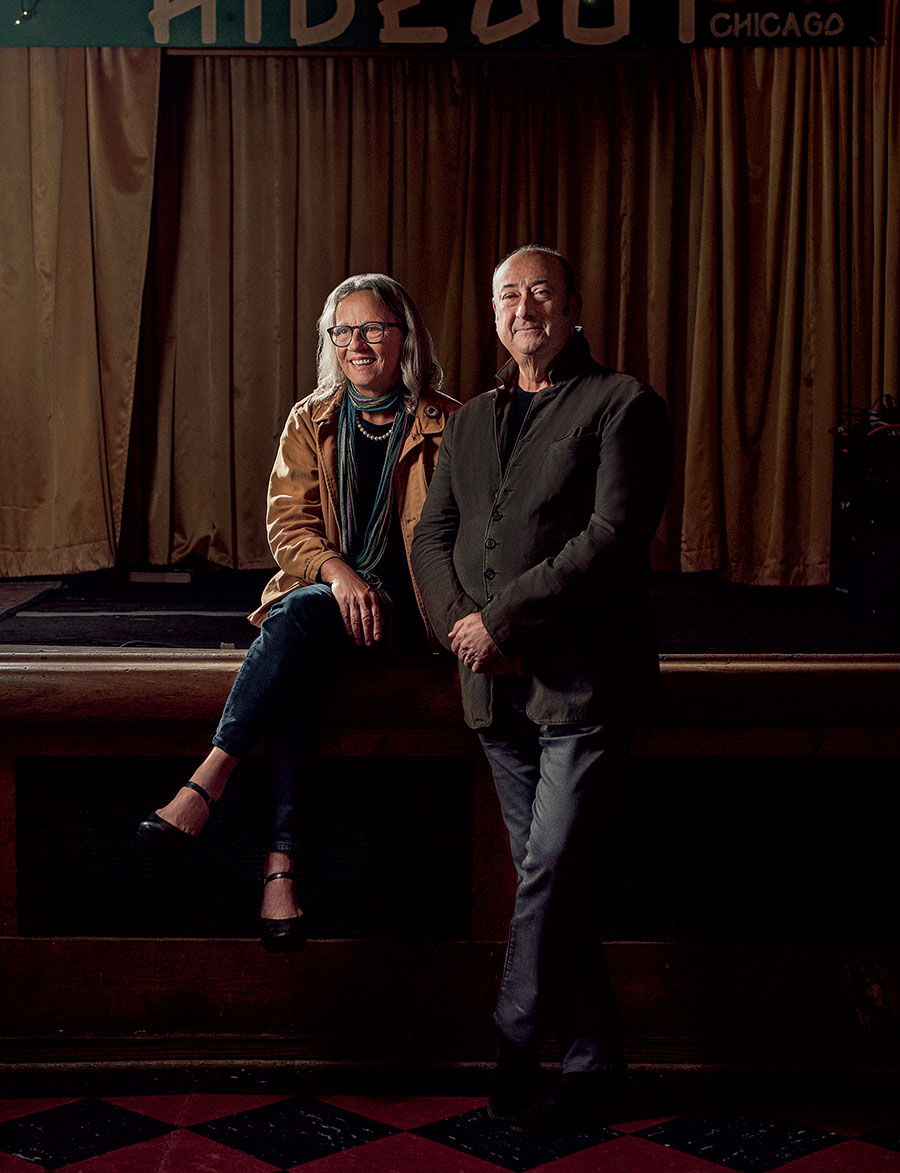We have a running joke, Joe Shanahan and I,” says Katie Tuten. “When this all started, he would say, ‘OK, I’ll talk to you in 15 minutes.’ ”
“No, no, Katie,” Shanahan interjects. “What I would say to you is, ‘Call me every 15 minutes.’ Because basically, we were speaking to each other every 15 minutes every day for about a year. And if I didn’t hear from her, I would think something was wrong.”
Tuten is a co-owner of the Hideout, and Shanahan owns the Wrigleyville venues Metro, Smartbar, and GMan Tavern. They were on the horn with each other to try to keep the city’s music venues afloat — first during the long pandemic shutdown and later amid the fight for federal funding to help turn the lights back on.
The two were among the founders of the Chicago Independent Venue League, a coalition of music clubs that initially formed in 2018 to push back against the proposed Lincoln Yards development, which was slated to include up to five new concert venues, all controlled by the megapromoter Live Nation.
But as COVID-19 descended in early 2020, CIVL pivoted to an even more urgent line of advocacy. Venues began sharing ideas on alternative revenue streams, such as selling merchandise online, and working together to push toward reopening. As members began talking to colleagues in other cities, CIVL became a blueprint for a larger coalition: the National Independent Venue Association, which mounted the campaign for the Save Our Stages Act.
Tuten and Shanahan served as public faces of the campaign, speaking to the national media and to legislators, keeping the pressure on as months passed between the act’s passage in December 2020 and the actual disbursement of funds, which began this summer.
“So now instead of me talking to the manager of the Foo Fighters,” Shanahan says, “I was talking to Mike Quigley or Jan Schakowsky. Katie’s talking to Richard Durbin or Tammy Duckworth.”
As live shows have ticked back up this year, Shanahan, Tuten, and other CIVL leaders have continued to collaborate on ways to keep the music playing, with many banding together on requiring proof of vaccination or negative tests for patrons.
“Some of us are competitors, you know, on a day-to-day business level,” Shanahan adds. “But that melted away quickly, because we may not have been in the same boat, but we were all in the same storm, looking to figure out survival for our staff, for our artists, for our bands and DJs, and our fans.”




